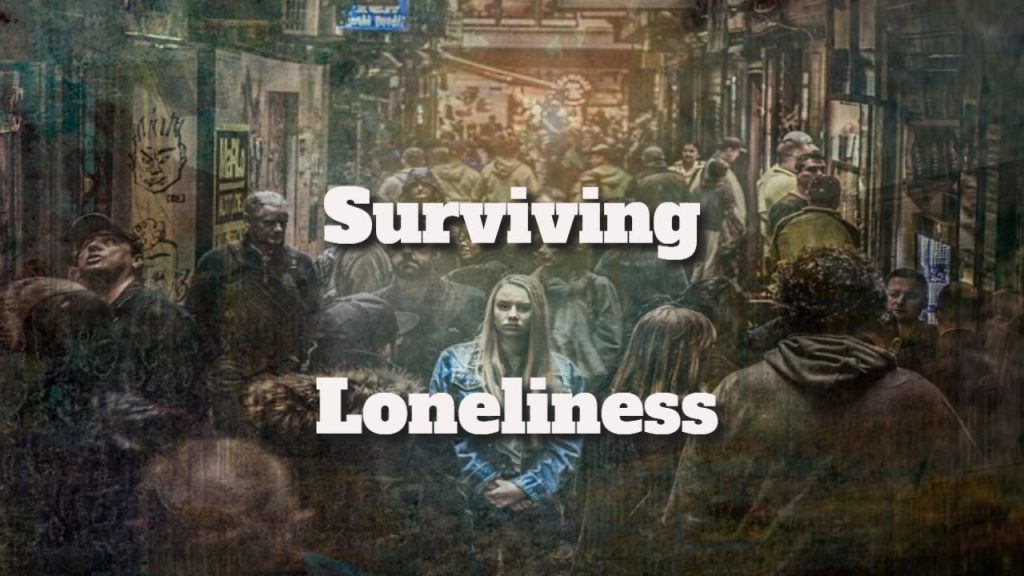Surviving Loneliness and Feeling Isolated
It can be challenging to handle the experience of feeling lonely and isolated. Whether you’re living alone in a new city or having difficulty connecting with others. It is vital to prioritise your mental health care and well-being. Fortunately, numerous ways are available to help you overcome loneliness and feel more connected to the world around you.
Recognising your feelings and getting help is one of the first steps towards overcoming loneliness. This could include contacting a trustworthy loved one, joining a local support group, or consulting a mental health professional. Remembering loneliness is a shared experience, and there’s no shame in asking for support when you need it.
Another critical tactic is to concentrate on making meaningful connections with others. This could include joining a club or community group, volunteering, or pursuing a new interest. By putting yourself out there and meeting new people, you can develop a sense of belonging and connection, making you feel less alienated.
Understanding Loneliness
Defining Loneliness
Feeling socially isolated is a subjective element of loneliness that can arise when there is a gap between your intended and real social contacts. Everyone, regardless of gender, age, or socioeconomic class, can experience this complicated and multifaceted feeling.
Psychological Impact
Your emotional and psychological well-being might take a severe hit when you’re lonely. In addition to lowering your immune system and making you more prone to chronic diseases. Feelings of sadness, worry, and despair may manifest as a result.
Social Dynamics
Loneliness is not only a personal issue but also a societal one. Various factors, such as the breakdown of traditional social structures, changes in family dynamics, and the rise of technology-mediated communication, can cause social isolation. The stigma surrounding loneliness can also prevent people from seeking help and support, further exacerbating the problem.
Ultimately, being alone is a complex emotional and physical toll. If you or someone you know suffers from social isolation, you must learn about the signs and symptoms of loneliness and get assistance.
Strategies for Coping
Loneliness and isolation can be challenging, but some strategies can help you manage these feelings. Here are some tips to help you feel more connected and supported.
Mindfulness and Self-Compassion
Mindfulness allows you to tune into your internal experiences and remain here and now. This can be particularly helpful when you’re feeling lonely or isolated. Try to focus on the present moment and engage with your surroundings. You can also try self-compassion exercises, such as writing positive affirmations or reminding yourself of your strengths and accomplishments.
Building Social Networks
Building social networks can be an effective way to combat loneliness and isolation. Start by contacting friends and family members and making plans to spend time together. Another option is to join an exciting organisation or club, such as a reading group or a sports team.
Professional Support
Seek professional help if you are experiencing feelings of loneliness and isolation. You can discover a helpful setting to work through your emotions and find strategies to manage them with the help of a therapist or counsellor. You can also discuss referral alternatives with your primary care physician.
Remember that feeling lonely or alone is a common experience and that coping tools are available. You can feel more connected and supported by practising mindfulness and self-compassion, creating social networks, and seeking professional help.
Engaging in Activities
However, engaging in activities can be a great way to combat these feelings and improve your mental health. Here are some ideas for activities you can try:
Hobbies and Interests
Creating art, playing an instrument, or just reading are all examples of what this might include. Engaging in an activity you love can take your mind off your loneliness and focus on something positive.
Volunteering Possibilities
Volunteering is an excellent opportunity to give back to your community and meet new people. Numerous volunteer opportunities are available, ranging from assisting a local charity to participating in a community event.
Physical Activity
If you are experiencing feelings of isolation and loneliness, doing some exercise will help. You can attempt many different sorts of exercise, whether you favour running, yoga, or weightlifting. Consistent exercise may improve physical health, increase mood, and reduce stress.
Remember that participating in activities is one approach to dealing with loneliness and isolation. If you are struggling with your mental health, you must get treatment and support. Speak with a friend or family member or with a mental health professional.
Online Support and Communities
Loneliness isn’t always easy, but online groups and support can be a valuable resource for those feeling lonely.
Identifying Relevant Groups
Numerous online communities are tailored to members’ interests and needs. Facebook, Reddit, and Discord are popular sites for finding online groups.
Finding a group that is friendly and supportive is critical. Read over the group’s rules and standards and see how members communicate. Introduce yourself and begin engaging with the community if you feel comfortable.
Keeping Online Relationships
Building and keeping relationships online can differ from building and maintaining in-person relationships. Being conscious of how you speak and interact with individuals online is critical.
Scheduling regular check-ins with online buddies is one approach to sustaining relationships. It is also critical to respect others’ limits and privacy. Keep track of your time online, and never give out personal information unless asked.
Finding appropriate organisations and establishing online contacts might help you build a supporting network to assist you in getting through tough times.
Long-Term Solutions Lifestyle Adjustments
Taking care of your physical health is one of the most important things you can do for yourself. Get enough sleep, eat a healthy diet, and exercise frequently. This will improve both your emotional and physical well-being.
Your social life is also an essential component of your lifestyle. Try to participate in activities that both interest you and include other people. Join a club, pick up a new activity, or volunteer for a worthy cause. This will assist you in meeting new people and making significant connections.
Seeking Meaningful Relationships
Along with making lifestyle adjustments, seeking meaningful interactions with others is critical. This can be difficult, but you can do a few things to simplify it.
First and foremost, be open to meeting new individuals. Attend social gatherings, talk with strangers, and join online communities that share your interests.
Second, be willing to make an effort to establish and sustain relationships. This includes listening well, expressing interest in others, and being dependable and trustworthy.
Finally, if you are genuinely struggling with emotions of loneliness and isolation, it is OK to seek professional help. You may be able to overcome these challenges with the assistance of a therapist or counsellor.
The post Surviving Loneliness and Feeling Isolated appeared first on Survival Avenue.
The post Surviving Loneliness and Feeling Isolated appeared first on https://gqcentral.co.uk
The Article Surviving Loneliness and Feeling Isolated First Appeared ON
: https://ad4sc.com

